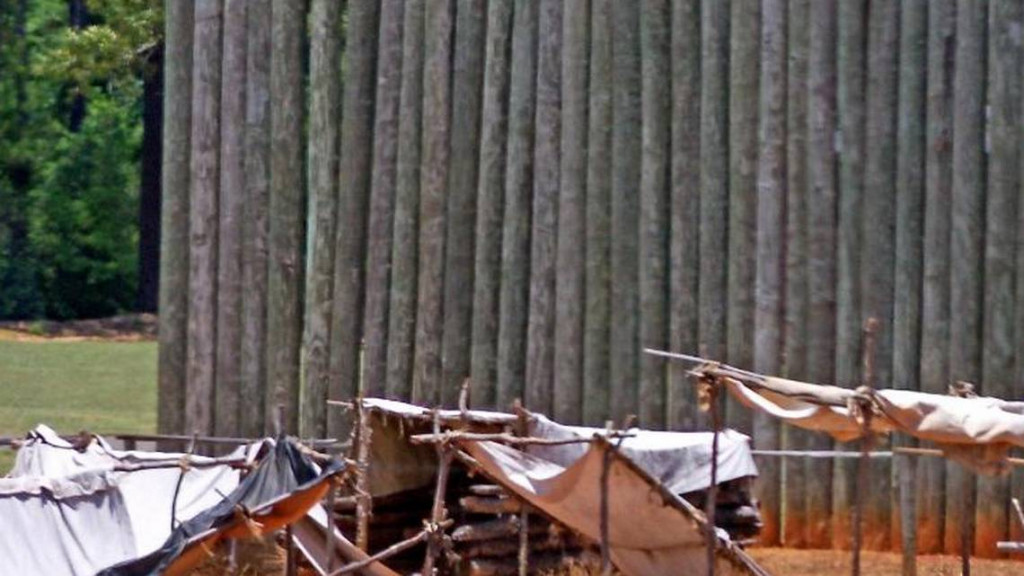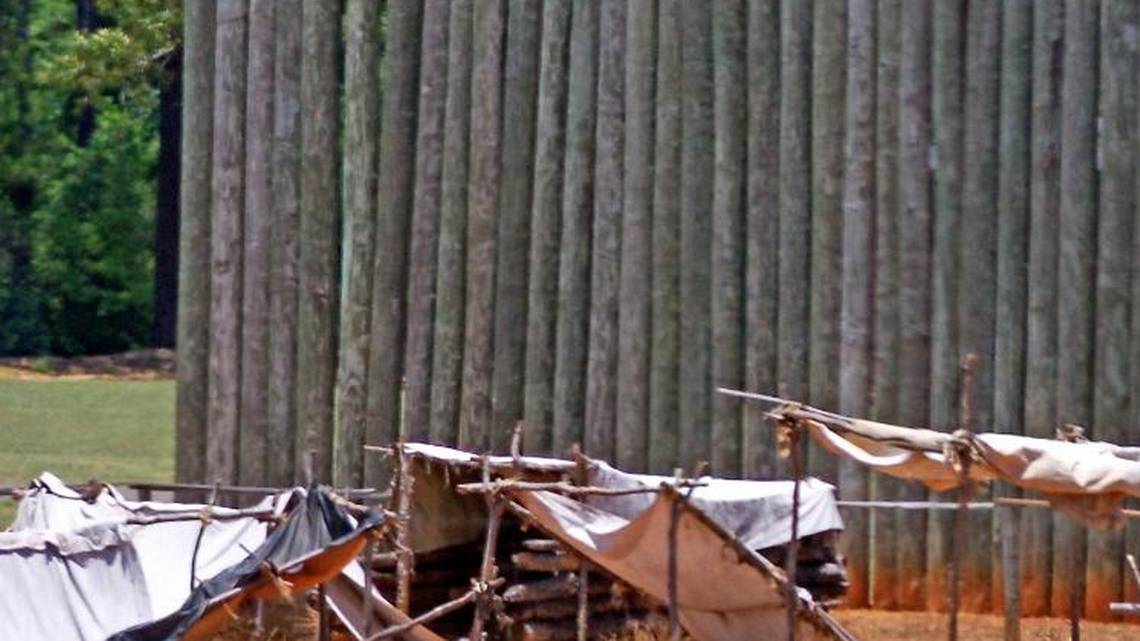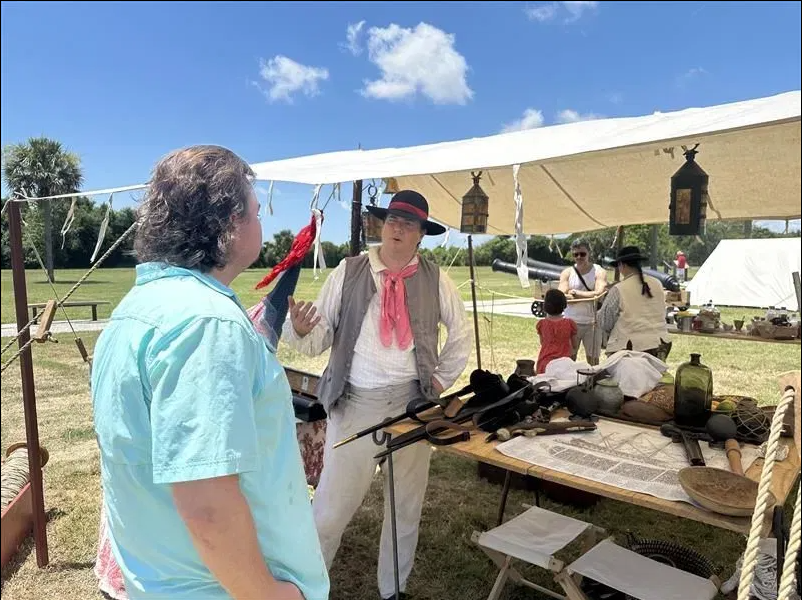GEORGIA: Andersonville’s Complicated History
The approach of Veterans Day — Nov. 11 — got me to thinking about a one-day tour bus trip I took some years ago along with about 50 other travelers.
We visited a National Historic Site in Georgia — Andersonville, a Civil War-era prison camp that held captured Union soldiers. The site and the museum exhibits, along with an orientation film, provides insights into the ordeal of being a prisoner of war. The park is 10 miles northeast of Americus on Ga.49. A four hour documentary called “Andersonville” was recently shown on television. Information on this National Park can be viewed at www.nps.gov/ande.

A section of the wooden stockade at the Civil War-era Andersonville Prison. Jean Tanner Special to The Island Packet/ The Beaufort Gazette
When the Civil War began, neither side expected a long conflict — from April 12, 1861-May 9, 1865 — but both armies had prison systems for captured prisoners. When an exchange system of prisoners that had been set up in 1862 failed, both North and South found themselves with thousands of prisoners of war. In the South, captured Union soldiers were first housed in old warehouses and barns, but as the numbers increased, camps were built specifically as prisons with wooden stockades enclosing open fields.
Andersonville was one of the largest of many Confederate military prisons and was built in early 1864. During the 14 months the prison existed, more than 45,000 Union soldiers were confined there. Poor sanitation, malnutrition, overcrowding, exposure to the elements and disease claimed some 13,000 lives. Andersonville ceased to exist in May 1865.
During the time the prison was operational, Capt. Henry Wirz, a Swiss-born Confederate officer, was in command of the prisoners and the camp, a position he held until the end of the war when he was arrested, tried and hanged as a war criminal. Guarded by four companies of soldiers, he was led to the gallows in the Old Capital Prison yard and said he was being hanged for following orders.
The prisoners who survived their stay at Andersonville despised Wirz for starving prisoners to death as punishment. His trial lasted 63 days as the public called for vengeance. Forgiveness was in short supply. The general feeling was reflected by the poet Walt Whitman when he wrote: “There are deeds, crimes that may be forgiven, but this is not among them. It steeps its perpetrators in blackest, escapeless, endless damnation.”
After the closing of Andersonville, a former prisoner, Dorence Atwater, 19, of the 2nd New York Calvary, created records of the deaths of prisoners. His lists proved invaluable to Clara Barton, who led the effort to get medical supplies, aid and care for the troops when President Abraham Lincoln authorized her to gather information on missing soldiers to inform their relatives. Thanks to Atwater’s list and Confederate records confiscated at the end of the war, only 460 of the Andersonville graves had to be marked “unknown United States soldier”.
After the war, the prison site reverted to private ownership before being purchased by the Georgia Department of the Grand Army of the Republic. But unable to finance improvements needed, the organization sold it for one dollar’ to the Women’s Relief Corp. In 1910, this group donated the prison site to the people of the United States. Since July 1, 1971, the park has been administered by the National Park Service.
Some Americans have experienced the prisoner of war ordeal for a few days; others for years. All of them have experienced the loss of freedom. To fully understand this loss is to cherish freedom all the more.
As we honor all our veterans this Veterans Day, we can appreciate this short excerpt from a poem, author unknown:
A Simple Soldier
He was getting old and paunchy and his hair was falling fast,
And he sat around the Legion telling stories of the past.
But we’ll hear his tales no longer, for ‘ol Bob has passed away, and the world’s a little poorer, for a soldier died today.
When politicians leave this earth, their bodies lie in state, while thousands note their passing and proclaim that they were great.
It’s not the politicians with their compromise and ploys, who won for us the freedom that our country now enjoys.
Bob, he was just a common soldier and his ranks are growing thin, but his presence should remind us we may need his like again.
If we cannot do him honor while he’s here to hear the praise, then at least let’s give him homage at the ending of his days.
Perhaps just a simple headline in the paper that might say,
Our country is in mourning, a soldier died today.”
Contributor Jean Tanner is a lifetime rural resident of the Bluffton area and can be reached at jstmeema@hargray.com.
###



